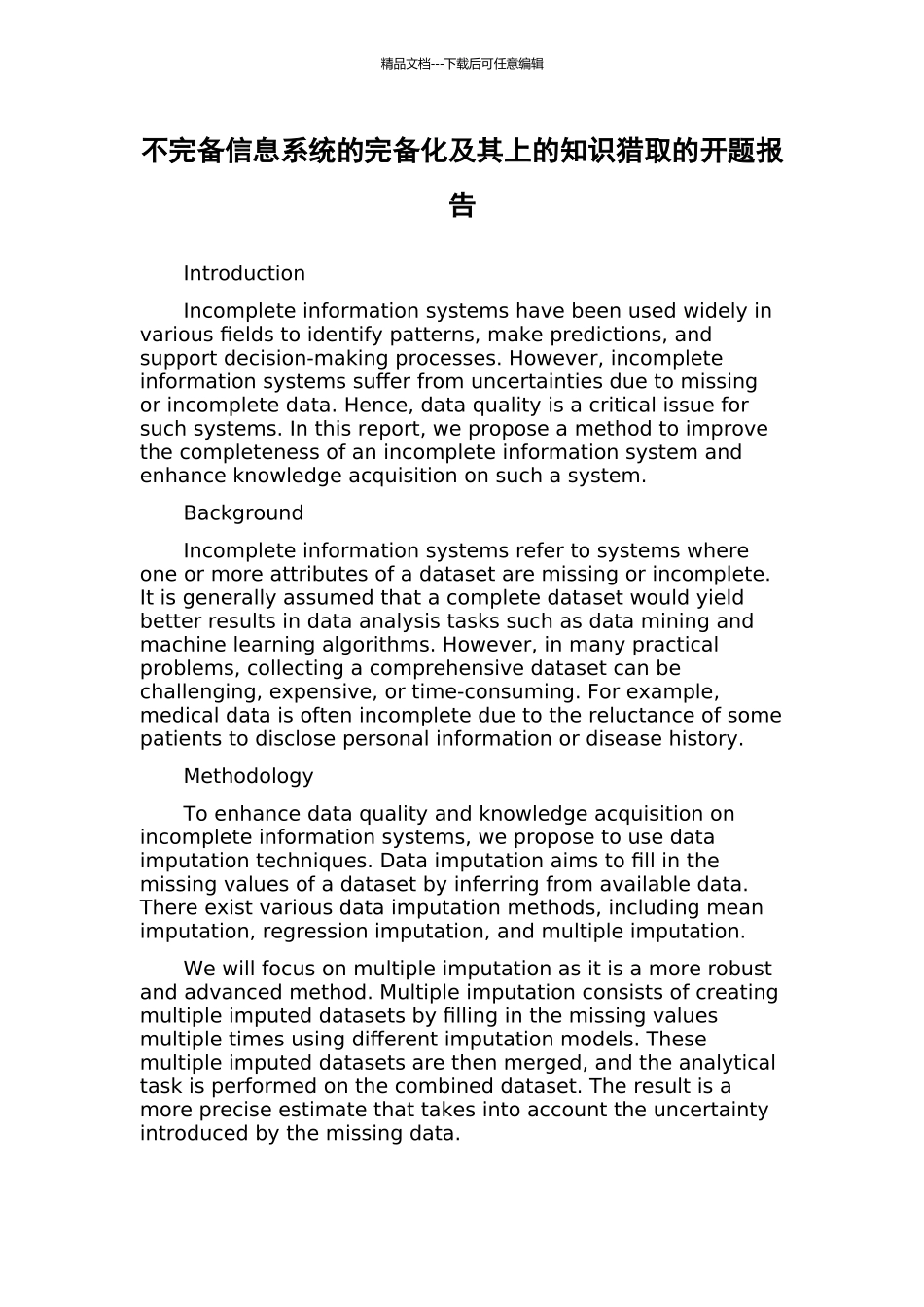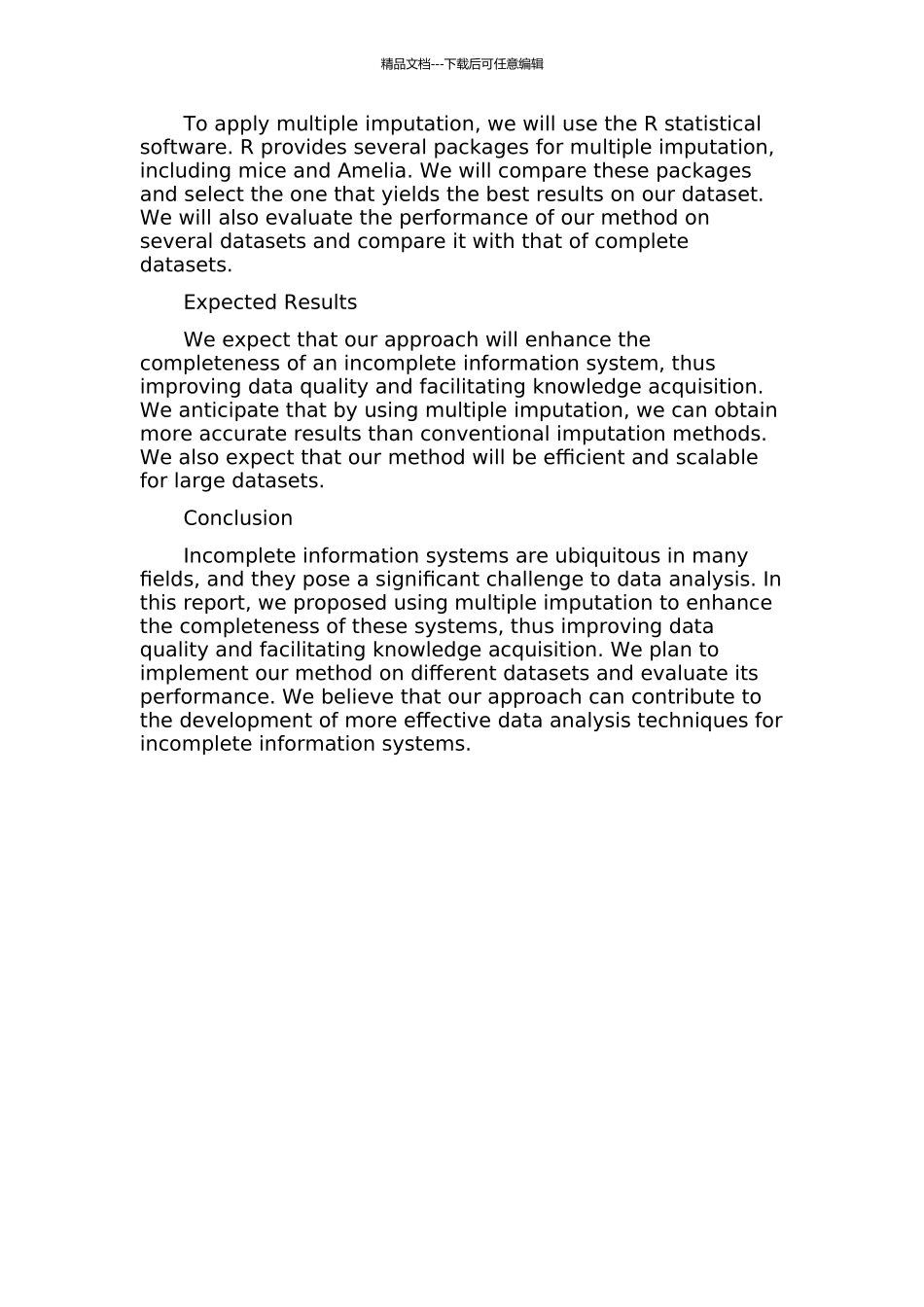精品文档---下载后可任意编辑不完备信息系统的完备化及其上的知识猎取的开题报告IntroductionIncomplete information systems have been used widely in various fields to identify patterns, make predictions, and support decision-making processes. However, incomplete information systems suffer from uncertainties due to missing or incomplete data. Hence, data quality is a critical issue for such systems. In this report, we propose a method to improve the completeness of an incomplete information system and enhance knowledge acquisition on such a system.BackgroundIncomplete information systems refer to systems where one or more attributes of a dataset are missing or incomplete. It is generally assumed that a complete dataset would yield better results in data analysis tasks such as data mining and machine learning algorithms. However, in many practical problems, collecting a comprehensive dataset can be challenging, expensive, or time-consuming. For example, medical data is often incomplete due to the reluctance of some patients to disclose personal information or disease history.MethodologyTo enhance data quality and knowledge acquisition on incomplete information systems, we propose to use data imputation techniques. Data imputation aims to fill in the missing values of a dataset by inferring from available data. There exist various data imputation methods, including mean imputation, regression imputation, and multiple imputation.We will focus on multiple imputation as it is a more robust and advanced method. Multiple imputation consists of creating multiple imputed datasets by filling in the missing values multiple times using different imputation models. These multiple imputed datasets are then merged, and the analytical task is performed...

